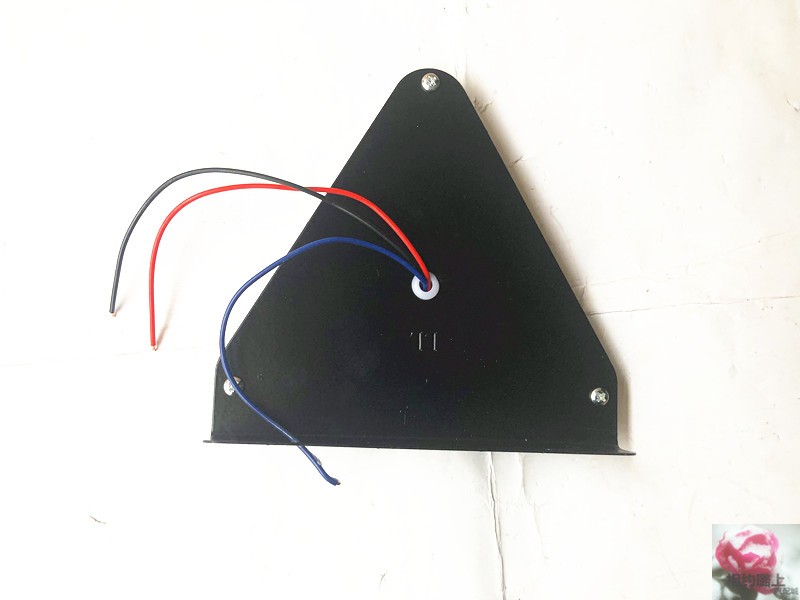
Just weeks before the start of the historic criminal trial of Donald Trump, Manhattan District Attorney Alvin Bragg made a surprising decision to set aside a potentially potent piece of evidence: Prosecutors will try to convict the former president without referring to an admission made by his former lawyer, Rudy Giuliani.
Appearing on Sean Hannity’s show for an interview on May 2, 2018, Giuliani told Fox News viewers that Trump knew about the hush money payments to adult film actress Stormy Daniels, an important point prosecutors will need to prove at trial later this month.
So why did Bragg decide not to show the interview to the jury during his “case-in-chief”?
Legal analysts believe pushing to introduce this evidence could have compromised any conviction of Trump on appeal, and Bragg already showed he had stronger evidence at his disposal from the former president himself.
How Bragg addresses the issue must balance two competing concerns: for supporters of his prosecution, the need for accountability in what may become the only criminal case against Trump to go to trial before the 2024 presidential election—and for skeptics, the need for such historic proceedings to conform to evidentiary standards of due process to ensure that 34 felony convictions against a former president can stand up on appeal.
To understand why, it’s important to remember the context and history of Giuliani’s interview with Hannity and the political firestorm that greeted it.
AdvertisementIn April 2018, the FBI had raided the home and office of Trump’s then-fixer Michael Cohen in pursuit of multiple criminal cases, including a campaign finance case about hush money payments to Daniels before the presidential election. At the time, the Wall Street Journal was six stories deep into its Pulitzer Prize–winning investigative series on the hush money scandal. The articles turned public attention ever closer to the then–sitting president. (One headline in the series read: “Cohen Would Turn Against President if Charged, Counselor Warned Trump.”) Set against this backdrop, Giuliani accepted an invitation to appear on Sean Hannity’s show on Fox News in order to insist that Trump did nothing wrong.
Advertisement Advertisement AdvertisementAccording to Politico, Giuliani made a boozy pit stop at the Grand Havana Room, a cigar smoke–filled haunt in Midtown Manhattan. Giuliani denied he was drinking, but by all accounts, the ex–New York City mayor told Fox viewers more than he should have for his client.
AdvertisementThen-President Trump “did know about the general arrangement” that Cohen “would take care of things like this,” Giuliani told Hannity during the interview, referring to the hush money payments. Later in the show, Giuliani noted that Cohen “funneled” his $130,000 payoff to a law firm and revealed, for the first time, that Trump “reimbursed” him.
Giuliani’s performance instantly became a late-night punchline, with comedian Stephen Colbert comparing it to a lawyer talking his client out of a speeding ticket by telling the officer he was “too drunk.”
“Rudy, you’re not helping,” Colbert cracked.
Giuliani later claimed he misspoke, and Trump’s White House pivoted to damage control.
Almost immediately after the Hannity interview, Trump and his associates quickly disavowed Giuliani’s remarks. Two days after it aired, Trump told the New York Times that Giuliani had not yet started his new role on his legal team at the time of the broadcast and suggested the former mayor did not get his “facts straight.” Giuliani followed up the Hannity interview with another sit-down with ABC News host George Stephanapoulos, repudiating and casting doubt on some of his earlier remarks.
Advertisement AdvertisementIn the lead-up to trial, Trump’s attorney Todd Blanche has sought to keep the interviews and their aftermath away from the jury, arguing in a legal brief that Giuliani went “off script, without authority, and without preparation or sufficient knowledge of the underlying facts.” According to the defense, Giuliani’s remarks amounted to hearsay because he was not acting as Trump’s “agent,” and his televised remarks about Daniels were unauthorized. Hearsay evidence is an out-of-court statement that is offered for its truth, and is generally inadmissible unless it falls into one of many exceptions.
AdvertisementRejecting that argument, prosecutors described Giuliani’s statements as “admissible non-hearsay” because the former mayor, as the then-president’s lawyer, was his “agent.” Trump’s legal team even consented to the admission of Giuliani’s statements in their failed effort to transfer the state case to federal court, prosecutors noted. But legal experts are not so sure prosecutors had a clear path to victory with that position.
Advertisement“The prosecution, I would think, wants a ‘clean’ presentation, and adding Rudy Giuliani’s statement to the mix could open an unnecessary can of worms,” said attorney Julie Rendelman, a former homicide prosecutor in Brooklyn, New York.
Brian Buckmire, a longtime public defender and practicing trial attorney, believed Trump’s attorneys had a “solid argument” to exclude Giuliani’s statements, and it was one that he would make in their position. But he added that Bragg’s decision to leave out that piece of evidence rather than push the issue before Manhattan Supreme Court Justice Juan Merchan may cause some concern for Trump’s legal team.
Advertisement Advertisement“As a defense attorney, my instincts are asking, ‘Do they have something better?’ ” Buckmire said.
AdvertisementTo Buckmire and Rendelman, who are both longtime criminal law practitioners affiliated with the Law&Crime network, Bragg seems intent on avoiding anything that might compromise a final conviction.
“One thought is that Bragg wants to avoid the risk of having an appealable issue should they win at trial,” Rendelman said. “I don’t believe it’s so cut and dry that Giuliani was acting as Trump’s agent when he made those statements.”
For Buckmire, the question of whether to show jurors Giuliani’s interviews went to trial strategy as much as the law, especially if prosecutors “found similar statements made by Trump that fit their definition of what’s admissible.”
Indeed, Trump’s attorneys fought the admission of “nearly 100 statements” attributed to the former president, including excerpts from his books like The Art of the Deal, Trump: Think Like a Billionaire, and Think Big—Make It Happen in Business and Life. One of the 82 statements from Trump involves his boast to Fox & Friendsreporter Ainsley Earhardt about the reimbursements: “They came from me, and I tweeted about it,” a comment that fell months after Giuliani’s interview—and which represents, in many ways, a more explicit concession than any comment his former lawyer made.
Advertisement AdvertisementRelated From Slate

Richard L. Hasen
The Supreme Court Just Delivered a Rare Self-Own for John Roberts
Read MoreNotably, and unlike the Giuliani interview statements, Bragg’s team did not abandon this more direct evidence from Trump when challenged by the defense and fought to preserve its admissibility.
As to Trump’s interview with Earhardt, prosecutors say the former president’s lawyers should lodge any objection regarding the statement’s relevance “if and when the People move to admit this statement.” Prosecutors intend to cite Trump’s books boasting about his careful attention to all aspects of his business and his penchant for retribution, encapsulated in comments like “if someone screws you, screw them back” and “like it says in the Bible, an eye for an eye.” Trump’s lawyers noted that many of those books were ghostwritten, and prosecutors do not dispute that.
AdvertisementPopular in News & Politics
- The Lawyer Defending Idaho’s Abortion Ban Irritated the One Justice He Needed on His Side
- We’ve Been Entertaining an Illusion About the Supreme Court. It’s Finally Been Shattered.
- You Don’t Want to Know How It’s Going Between Trump’s Lawyers and the Judge Presiding Over His Criminal Case
- Prosecutors Are Finally Revealing Their Strategy Against Trump
“Defendant is free to argue at trial that he did not in fact say the things he said in his books,” Bragg’s assistant Matthew Colangelo wrote in a legal brief. “The jury can then assess that claim and determine how much weight the statements deserve.”
Though Giuliani’s half-decade-old Hannity interview may have caused a legal and public relations headache for Trump in 2018, it will likely barely register as a footnote to the former president’s criminal trial. However, prosecutors did not close the door entirely to its appearance in a possible rebuttal case, only the “case-in-chief.”
Advertisement AdvertisementThe Giuliani interview would be admissible only if Trump’s legal team opens the door to the subject in their defense case—if, for example, the defense alluded to one of his denials in these interviews.
“If the defense were to cross-examine a witness that in any way alluded to Giuliani’s statements then the court may find that the door has been opened,” Rendelman noted. “It’s hard to imagine a scenario where that would occur but with Trump, you just never know.”
More from Just Security:
Past Time to Liquidate Russian Assets
Applying Ukraine Precedent, DOJ Should Use Funds Forfeited from Lawbreakers in Syria to Assist Victims
Tweet Share Share Comment


